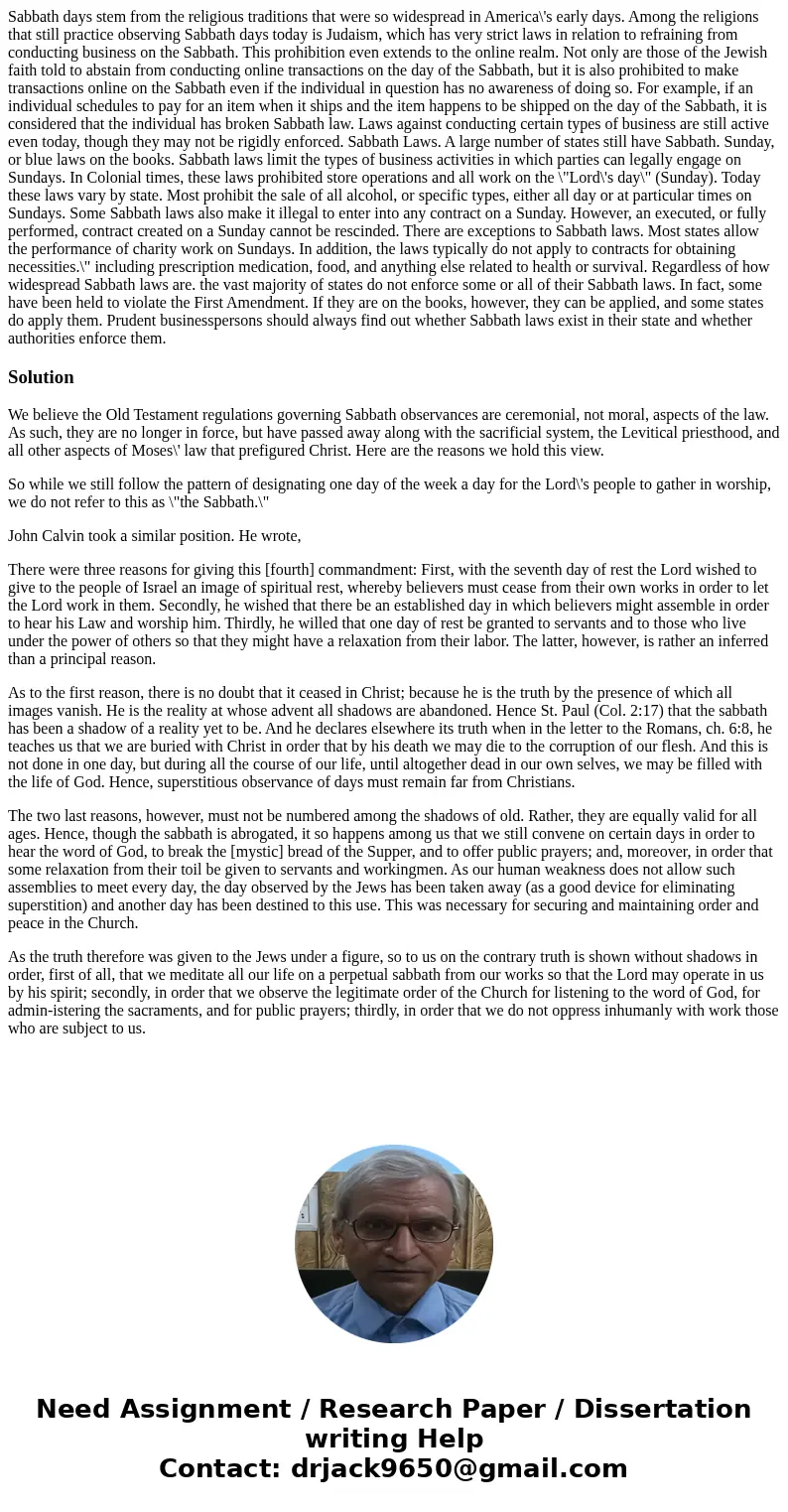Sabbath days stem from the religious traditions that were so
Solution
We believe the Old Testament regulations governing Sabbath observances are ceremonial, not moral, aspects of the law. As such, they are no longer in force, but have passed away along with the sacrificial system, the Levitical priesthood, and all other aspects of Moses\' law that prefigured Christ. Here are the reasons we hold this view.
So while we still follow the pattern of designating one day of the week a day for the Lord\'s people to gather in worship, we do not refer to this as \"the Sabbath.\"
John Calvin took a similar position. He wrote,
There were three reasons for giving this [fourth] commandment: First, with the seventh day of rest the Lord wished to give to the people of Israel an image of spiritual rest, whereby believers must cease from their own works in order to let the Lord work in them. Secondly, he wished that there be an established day in which believers might assemble in order to hear his Law and worship him. Thirdly, he willed that one day of rest be granted to servants and to those who live under the power of others so that they might have a relaxation from their labor. The latter, however, is rather an inferred than a principal reason.
As to the first reason, there is no doubt that it ceased in Christ; because he is the truth by the presence of which all images vanish. He is the reality at whose advent all shadows are abandoned. Hence St. Paul (Col. 2:17) that the sabbath has been a shadow of a reality yet to be. And he declares elsewhere its truth when in the letter to the Romans, ch. 6:8, he teaches us that we are buried with Christ in order that by his death we may die to the corruption of our flesh. And this is not done in one day, but during all the course of our life, until altogether dead in our own selves, we may be filled with the life of God. Hence, superstitious observance of days must remain far from Christians.
The two last reasons, however, must not be numbered among the shadows of old. Rather, they are equally valid for all ages. Hence, though the sabbath is abrogated, it so happens among us that we still convene on certain days in order to hear the word of God, to break the [mystic] bread of the Supper, and to offer public prayers; and, moreover, in order that some relaxation from their toil be given to servants and workingmen. As our human weakness does not allow such assemblies to meet every day, the day observed by the Jews has been taken away (as a good device for eliminating superstition) and another day has been destined to this use. This was necessary for securing and maintaining order and peace in the Church.
As the truth therefore was given to the Jews under a figure, so to us on the contrary truth is shown without shadows in order, first of all, that we meditate all our life on a perpetual sabbath from our works so that the Lord may operate in us by his spirit; secondly, in order that we observe the legitimate order of the Church for listening to the word of God, for admin-istering the sacraments, and for public prayers; thirdly, in order that we do not oppress inhumanly with work those who are subject to us.

 Homework Sourse
Homework Sourse